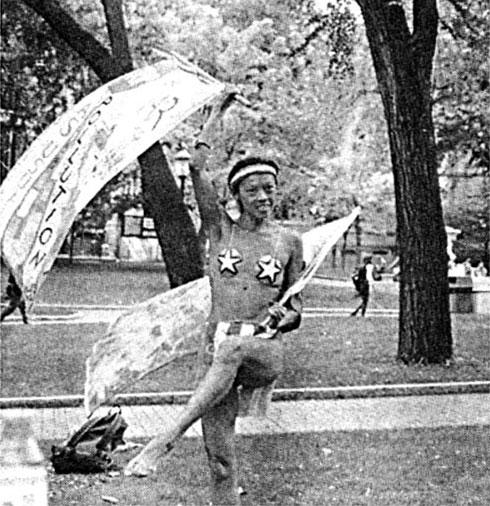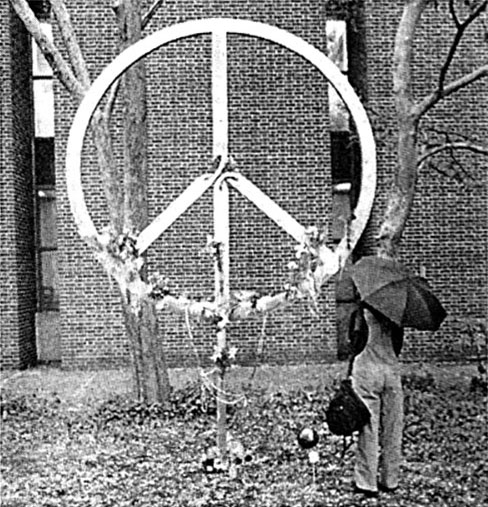words by jh | article
Epiphanies
(or how i gave myself
permission to play ‘nature boy’)
“After twentysomething years of recordings and performances, this is the first time I’ve ever played someone else’s song.
“With this recording, I locate myself squarely within that aspect of music which is fundamental and irreducible: the beauty of the sound. This is what Dane Rudhyar calls ‘tone-magic’—a concept derived from ancient practice wherein the quality of the tone itself communicates meaning quite apart from any further arrangement in an ‘artifice’ of music.
“At the same time, I celebrate here my first contacts with musical exotica in the form of certain songs and melodies heard as a child on the radio or in movie scores. This music created a kind of permanent Technicolor oasis in my spirit—a place where I always want to stop for a cool refreshing drink, whether from Duke Ellington and Juan Tizol’s ‘Caravan’, or Ravel or raga, or gamelan or Gil, or João or Joujouka—and a place which became the underlying spring from which flowed my ‘fourth world’ musical paradigm.”
Liner notes for Fascinoma
SO LET’S SAY that an epiphany is just a fleeting glimpse out of the corner of your eye or your soul which can either be buried under the second-by-second, sensory-input-avalanche or can wind up as one of the world’s great religions. (The poet Ira Cohen defines this poetic moment as “temporary sanity”.)
I suppose we’re somewhere between those two as I report here the sum of multiple epiphanies that usually arrive in the morning as I’m summoning up that little vibration which gets channeled into a trumpet sound. Without meaning to be too precious about it, I sometimes feel like I’m lighting a candle, around which protective hands must be held to avoid its being blown out by the wind of my (apparently, ceaselessly) mutating mind (“shouldn’t I be doing this instead of that, how seriously should I take that breathless report of The Next Big Thing in Music, etc., etc.?”)
So there I am, sitting down one day getting up my sound and thinking about this instrument so full of history (both mine and its: “the conch shell meets the piston meets the harmonizer meets the conch shell”); trying to re-live even for a few seconds in the air of Raga Past where the interval of a fifth could be felt as “the sun”, and a fourth as “the moon”—and suddenly it occured to me that…
1. In some way which was vaguely felt but not understood—the recording process of Fascinoma resonated with something I remembered about Dane Rudhyar’s evocation of the idea of the “magic of tone” (before Pythagoras and number and measurement created the conditions within which the “art of music” would flourish).
2. This daily contact with “tone” was a blessing and an experience vastly removed from the process of making a computer make “music”.
But don’t be misled. I’m not a Luddite. (Not yet, anyway.) Among the credentials I’ll present on that morning in 2017 when the digerati gangs are sweeping the provinces clean of analog counter-revolutionaries, are the notes (played and written) on Aka-Darbari-Java, where I riffed lovingly on the poetic possibilities of digital transformations (“…a background mosaic of frozen moments…a sonic texture like a ‘Mona Lisa’ which, in close-up, reveals itself to be made up of tiny reproductions of the Taj Mahal”).
So the pleasure taken in finding myself in the middle of a church in Santa Barbara facing a single stereo microphone—where I could finally hear myself and other instruments in nothing but air, where I could hear myself being heard (especially through the spirit-catcher sensibility of Ry Cooder)—is born more of the delight in finding a pleasant country road which temporarily skirts the stylistic traffic jam than any off-with-their-heads pronouncements about the evils of technology.
I remember a diagram in Paul Klee’s Pedagogical Sketchbook illustrating a kind of “assymetrical balance” where a large field of pale color is shown to balance a small field of strong color. This suggests relationships in the development of musical forms relative to the timbres in which they are expressed. How could the calligraphy-in-air quality of raga be expressed in a “fat” sound? A body in motion must continually re-shape itself in order to appear graceful. So perhaps the instrumental and vocal timbres characteristic of much Asian music have evolved as they have because they are busy curving and decorating. When I started to study raga with the vocal master Pandit Pran Nath, I didn’t set out to develop a breathy, translucent sound; as I tried to play the shapes that his voice was making, the sound in which that was possible appeared by itself. (Note: this kind of organic relationship which yields eccentric, unpredictable, and very “local” results is an endangered species in a world of generic, one-box-does-all, “global” instruments.)
Somehow the experience of exciting the glorious resonance of that church space suggested a wider musical menu than the one I usually opened. Why? Maybe because I felt that just by playing a tone, a certain “quota” of beauty was already present. If the material at hand is a strand of rusty wire then weaving that wire into a delicate latticework is a strategy to create art(ifice); but a beautiful face or the sound of wind in the trees doesn’t cry out so much for “arrangement”
So I followed my instincts, pulled off the music expressway to something like one of those roadside parks where I felt free to sit and play the melody Eden Ahbez called ‘Nature Boy’ and ignored the faces of hierarchical critical thinking (especially, my own) scowling at me in the rear view mirror. •
jon hassell © 1999—Liner notes to Fascinoma
Dane Rudhyar—The Magic of Tone and the Art of Music / Shambhala Press, 1982
Aka-Darbari-Java / Magic Realism—Virgin/E.G. / EEGCD31
strange magic
by john payne
JON HASSELL IS a creator of connections. He’s an artist with fresh intuitions about how music, visual art, language, history, food, scents, “culture,” the body, the brain and just about everything else forming our beliefs about human nature can be viewed as individual threads in a single, very large fabric, and how that fabric might be endlessly rewoven.
Hassell—winner of the Best New Genre/Uncategorizable Artist at the L.A. Weekly Music Awards 2005—has called what he does “Fourth World,” which in his music indicates a way of proceeding that crossbreeds rhythmic and tonal wisdom from the ancient world with the very latest in digital technology, along with evolved conceptions of form, texture and harmony; his music is both composed and improvised, reconciles Eastern and Western, and increasingly Northern and Southern. Fourth World music and methodology have been enormously inspirational, to put it politely, among the raging hordes of electronic, New Age and world-music artists of the last 20 or so years, owing primarily to the widespread influence of Hassell’s collaborations with Brian Eno and Peter Gabriel.
The good-humored, lanky Hassell was born in Memphis, where he daydreamed to the music of Les Baxter and Eden Abez but went on to earn a degree in theory and composition at the renowned Eastman School, and to study electronic and serial music with Stockhausen. Through his initial recordings with minimalist divinities La Monte Young and Terry Riley, he met Hindustani raga sage Pandit Pran Nath, whose teaching emboldened Hassell to invent a new way of playing his trumpet, one that would hybridize traditional jazz/classical technique with Pran Nath’s tone-bending Kirana vocal style.
Hassell’s current Maarifa Street / Magic Realism 2 on his own Nyen label is another jaw-droppingly beautiful ride into a steamy, throbbing realm where Hassell’s hybrid of Indian and gamelan microtonality merges with fat dub-style bass lines, gauzy electronic chordings and Hassell’s octave-split horn voicings to create a distinctively futuristic gleam. As always, the emotional ground has to do with mystery and awe, rather than a mere tippy-toe dance on the clouds. Among other things, this sound addresses clichés of the “world music” kind, e.g., vocal samples by Indian classical soloists over Pygmy or Burundi-derived beats. This is strictly by design.
“You can divide things into hip, pre-hip and post-hip,” he says. “Pre-hip and post-hip have things in common: hip is a dangerous part, because you’re totally involved in being au courant. Post-hip means that you’ve punched through the sound barrier, and you’re discovering that clichés can be true; you’re discovering that what we call a cliché can be fundamental. And you then have the courage to be there wholly.”
Maarifa (the word means knowledge or wisdom in Arabic) is a recombination/reconstruction by Hassell’s bassist and co-producer/programmer Peter Freeman, via digital editing and distortion/treatment, of material that Hassell and his band worked out live in three European concerts, which material had already been based on music culled from various Hassell recordings. The concept is similar to what Hassell did in his first Magical Realism disc in 1983 and on 1997’s The Vertical Collection, and allows for astounding possibilities—the idea, for example, that Hassell never has to record one new note for the rest of his life, such is the depth and infinitely variable substance of his recorded work.
Hassell also draws recombinative inspiration from the things that move us sensually.
“It’s like watermelon and prosciutto or whatever,” he says. “It’s there, and therefore you think about it when you’re making something to eat. Why not put that in there? Then you listen to other people who come into contact with it freshly. You’re lucky enough to have this kitchen full of ingredients, and then you throw them together in a mad burst of appetite…”
And then 20 restaurants on Melrose charge $90 for it.
“That’s right. It’s like avant cuisine, but you want to avoid the fact that somebody else heard about your earlier restaurant and is making dishes like that—so you’re searching out new technology, more ways to mix.
ONE DANGER IN modern digital music-making is in the infinity of possibility. As we have heard from the vast bulk of recent electronic pop artists, and have seen on 10 billion Web sites, the technology is clearly there, but the content isn’t. The potential vastness of sonic variation makes it easy for the vision-challenged composer to get lost—paralyzed, even. And it’s very easy to make complex and shiny music literally at the push of a button.
“The Dutch architect Rem Koolhas called that a ‘premature sheen,’ says Hassell. “Premature because you didn’t go to school and the conservatory and learn how to write for strings and become a Claude Debussy and know how to write the real sheen, the mature sheen.” I wonder sometimes why people listen to music throughout their waking hours. Actually, too much is bad for you. On his Web site, (www.jonhassell.com), Hassell notes that one ought to differentiate between gourmet and gourmand. “The iPod—5,000 songs? We need to go on a music diet,” he says. “With the Web and cheap recording technology and all those elements that killed the music ‘industry'”—he laughs—”Big Brother is still is up there saying, ‘Listen to music, it’s good for you!'”
The digital “revolution,” too, has brought new ways of disseminating information about music, useful for non-Top-40 types like Hassell, whose site is a fertile wonderland of far-reaching ideas about the interconnectivity and uses of the past and the future in music, language, food and sensuality explored in ever-shifting form (audio, visual, text). This all will be further detailed in his forthcoming The North and South of You, “a book of ideas toward creating a personal and social paradise rooted in the musical paradise of the Fourth World paradigm.”
In order to grasp some of these potentials for creativity, and how we’re being cheated out of it, Hassell suggests that we consider this current dilemma:
“Formulations like axis-of-evil, good-bad, with-us-or-against-us are the norm in the EGN (Era of Great Numbers),” he writes. “Maybe we’ve arrived at the condition of Americans Not Knowing What Other People Think (of Them and Why) reaching critical mass. A scale effect: more and more Americans knowing less and less (as a percentage of what there is to know).”
What to do? “In order to grasp the enormity of the situation—that we are living in a psychologically geometric space, carved from words, slogging our way through a multidimensional traffic jam where accidents are happening all around you every second—you have to suspend disbelief and try to imagine the unimaginable, to feel intuitively that which is not yet known.” •
This interview first appeared in the LA Weekly Online
October 2005 | www.laweekly.com






